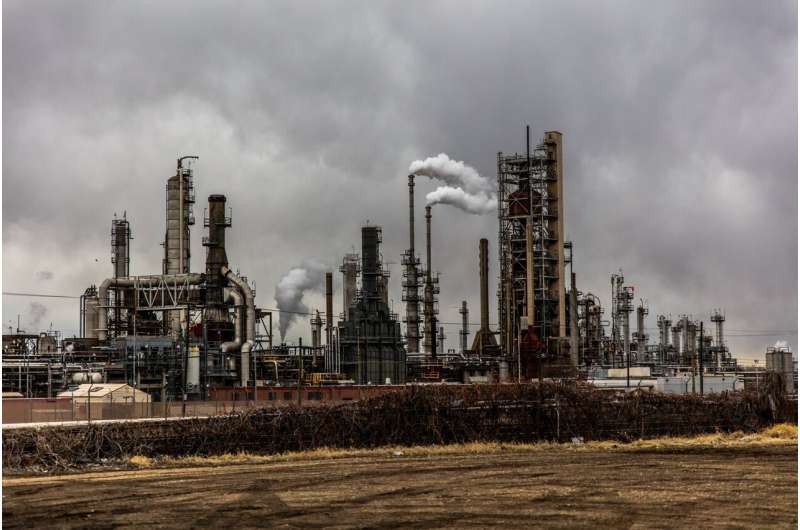Credit: Unsplash/CC0 Public Domain
The Amazon rainforest is emitting more carbon dioxide than it absorbs, according to a new pollution report—the opposite of what is supposed to happen.
Elsewhere in the world, air pollution levels spiked in 2021 after dropping in 2020 due to COVID-related lockdowns, according to the annual World Air Quality Report released by pollution tracking company IQAir.
Analyzing measurements from air monitoring stations in 6,475 cities around the world, IQAir found that just 3% of cities—and not a single country overall—had met the annual air quality guidelines spelled out by the World Health Organization to protect public health.
Of the cities analyzed, the average air quality of just 222 of them met the WHO's standard, including Puerto Rico and the U.S. Virgin Islands, as well as the French territory of New Caledonia.
This was the first analysis based on the WHO's new recommendations, released in September 2021, that cut the recommended allowable amount of fine particulate pollution—the kind that is small enough to be transported from the lungs to the bloodstream along with oxygen—in half.
Fine particle pollution is a major contributing factor in conditions and ailments including asthma, stroke and diseases of the heart and lung as is a factor in millions of deaths each year, IQAir noted.
While many cities and countries in Asia were among the most polluted, China's overall air quality continued to improve during 2021, the researchers said. Several countries had many times the recommended amount of particulate pollution, the report said.
In Brazil, deforestation is at a 15-year high, the report noted – bad news for the climate-regulating rainforest.
"Due to deforestation for agricultural and industrial purposes, wildfires in the Amazon have resulted in the world's largest rainforest now emitting more CO2 than it absorbs," IQAir said in its report.
"This report underscores the need for governments around the world to help reduce global air pollution," IQAir North America CEO Glory Dolphin Hammes told CNN, adding that fine particulate matter "kills far too many people every year, and governments need to set more stringent air quality national standards and explore better foreign policies that promote better air quality."
Hammes hoped it would be viewed as a call to action.
"This report underscores just how much work remains to be done to ensure that everyone has safe, clean and healthy air to breathe," Hammes said in the researchers' statement. "The time for action is now."
©2022 New York Daily News.
Distributed by Tribune Content Agency, LLC.
























